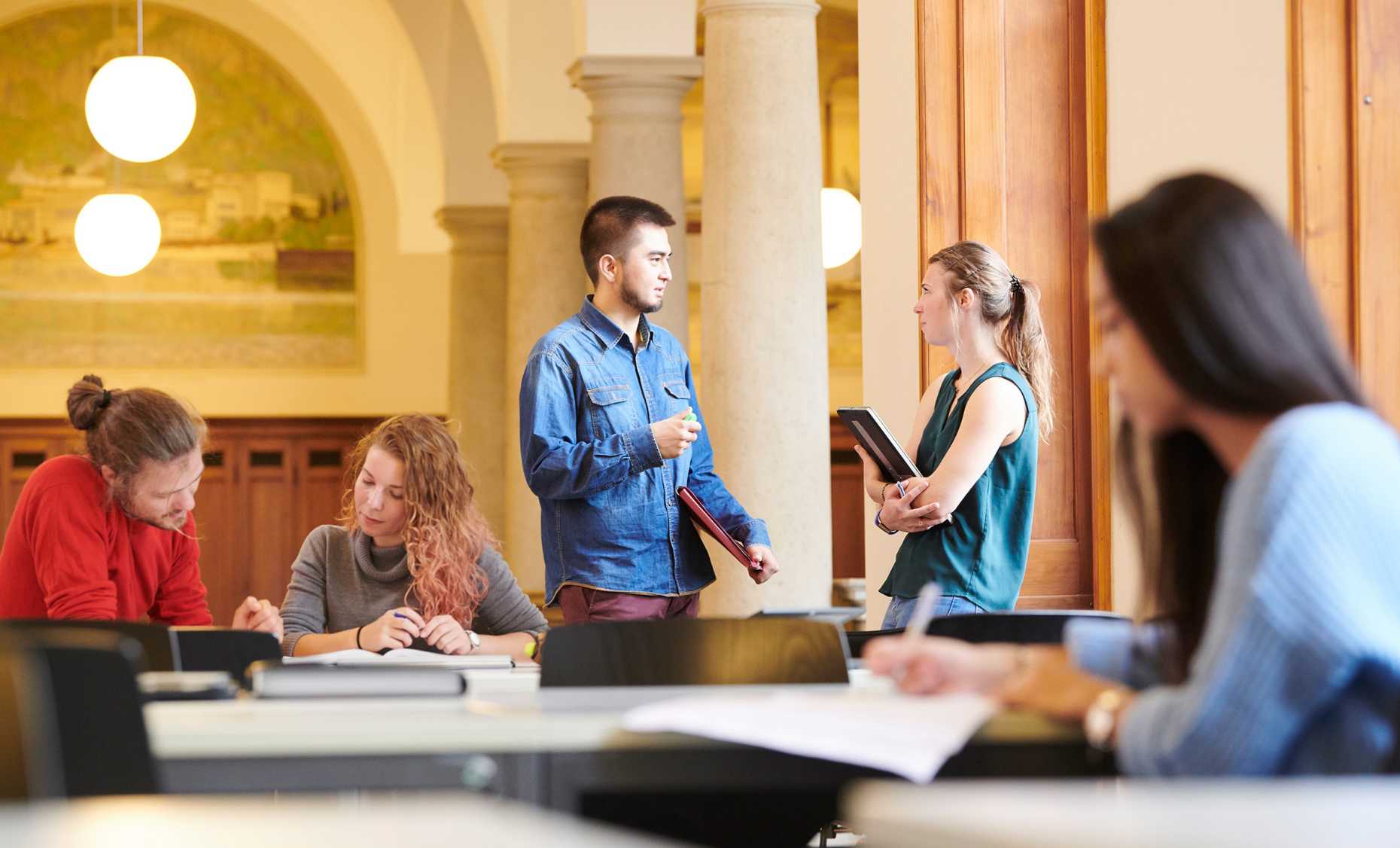Spring Semester 2022 Course Highlights – Circular Economy, Energy Policy and Learning Strategies
The D-MTEC curriculum is evolving. It now includes a seminar on energy policy and a course on effective learning strategies. Read more for a glimpse into the new courses as well as a description of a seminar on circular-economy-driven business models.

Calls for re-thinking business and the economy, coming together as a society and becoming agents of change ourselves are ubiquitous as we deal with the challenges of our time. These endeavours are, however, complex; making way for a more sustainable future requires a multitude of visionary and scientifically sound approaches.
The D-MTEC curriculum features many such perspectives. In the upcoming semester a new seminar taught by Erik Jentges offers insight into learning strategies that empower students to acquire knowledge more efficiently. Suchita Srinivasan invites students to engage deeply in discussions of energy policy. Before introducing these two courses in detail further below, we here highlight another elective course – not a new one, but one we encourage our MSc MTEC students to consider in planning their next semester.
Business Models for a Circular Economy
- Course Details: Link to Course Catalogue
- Lecturers: Catharina Bening, Nicola Blum
- Offered to: MSc MTEC students
- Credit points: 3 CP
In this course, Catharina Bening, Nicola Blum and Anna Kulakovskaya introduce students to the circular economy, leading them through the process of re-thinking an existing product in a circular way. At the end of the course students will come up with new circular business models for their products.
As a novel concept in sustainability and business practice, the circular economy aims at reducing resource consumption and emissions. It also holds disruptive potential to reshuffle the power distribution between different agents along the value chain. “The Circular Economy is the new normal in sustainability research and business,” says Catharina Bening. “This course is based on our latest research; together with students, we explore new avenues in the field. This kind of co-creation of knowledge is what I personally like best.”
The exploration of circular economy principles and research is supplemented by diverse workshop formats and teamwork. “Learning by experiencing is the mantra of this course,” says Nicola Blum. “Students work on the textile industry, for example, and apply different methods such as the Impact Gap Canvas or Pitching in front of a jury. This makes the learning experience much more interactive.”
Critical reflection is an integral part of the course and is fed by a clear understanding of the components comprising a circular economy. “Circular Economy strategies are numerous and not always trivial, and their business potential is often unclear,” explains Anna Kulakovskaya. “I feel excited to be exploring these strategies – reuse, refurbishment, recycling and remanufacturing – across different industries together with students. This provides a vast space for creative ideas and holistic assessments.”
Effective Learning Strategies
- Course Details: Link to Course Catalogue
- Lecturer: Erik Jentges
- Offered to: MSc MTEC students
- Credit points: 0 CP
This interactive online course helps build efficient and healthy learning habits with a focus on practice. Students learn how to direct their own learning, how to develop smart learning habits and how to cultivate a systems mindset to link their thinking. Through peer feedback, peer accountability and learning in public, students gain a proficient command of effective learning strategies.
The course covers four modules that acquaint students with efficient and effective learning techniques and help them apply these to their own education. The techniques will also be beneficial to students after they have left university. The modules are:
- Active Recall and Spaced Repetition: Evidence-based research from the learning sciences
- Developing a Systems-Mindset: Creating Synthesis and Big-Picture Thinking
- Efficient Note-Taking: Decision-making about what is relevant to commit to a second brain
- Effective Note-Making: The compounding value of linking your thinking and re-finding your references
These modules are taught in the first half of the semester with a focus on applied training with peer feedback. In the second half of the semester, group coaching interventions are offered on demand.
Topics in Energy and Climate Policy
- Course Details: Link to Course Catalogue
- Lecturer: Suchita Srinivasan
- Offered to: MSc MTEC students and MAS MTEC students
- Credit points: 1.5 CP
- Prerequisite: Parallel Enrolment in Energy Economics and Policy
This seminar offers students the opportunity to deepen their knowledge of energy- and climate-policy issues. They will make presentations and engage in discussions about academic literature analysing the economic aspects of energy- and climate-policy instruments.
The topics discussed include:
- Economics of market-oriented policy measures such as taxes and subsidies
- Economics of non-market-oriented policy instruments such as standards, regulations, information policies, nudges, etc.
- Application of energy- and climate-policy instruments with a focus on developing countries, including topics related to mobility, electrification and pollution
This block seminar will take place on a Friday afternoon and Saturday as a retreat at the end of Spring Semester.